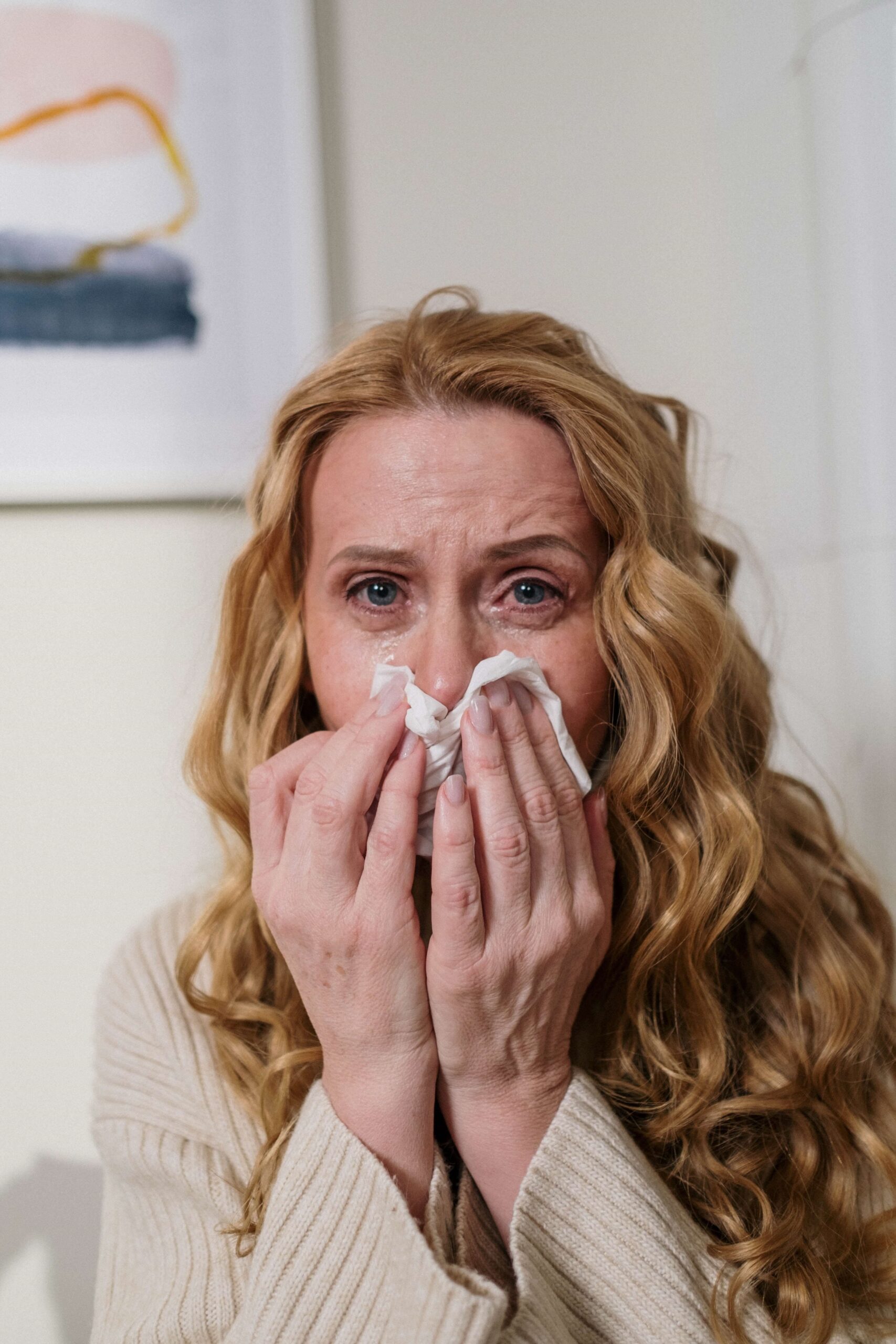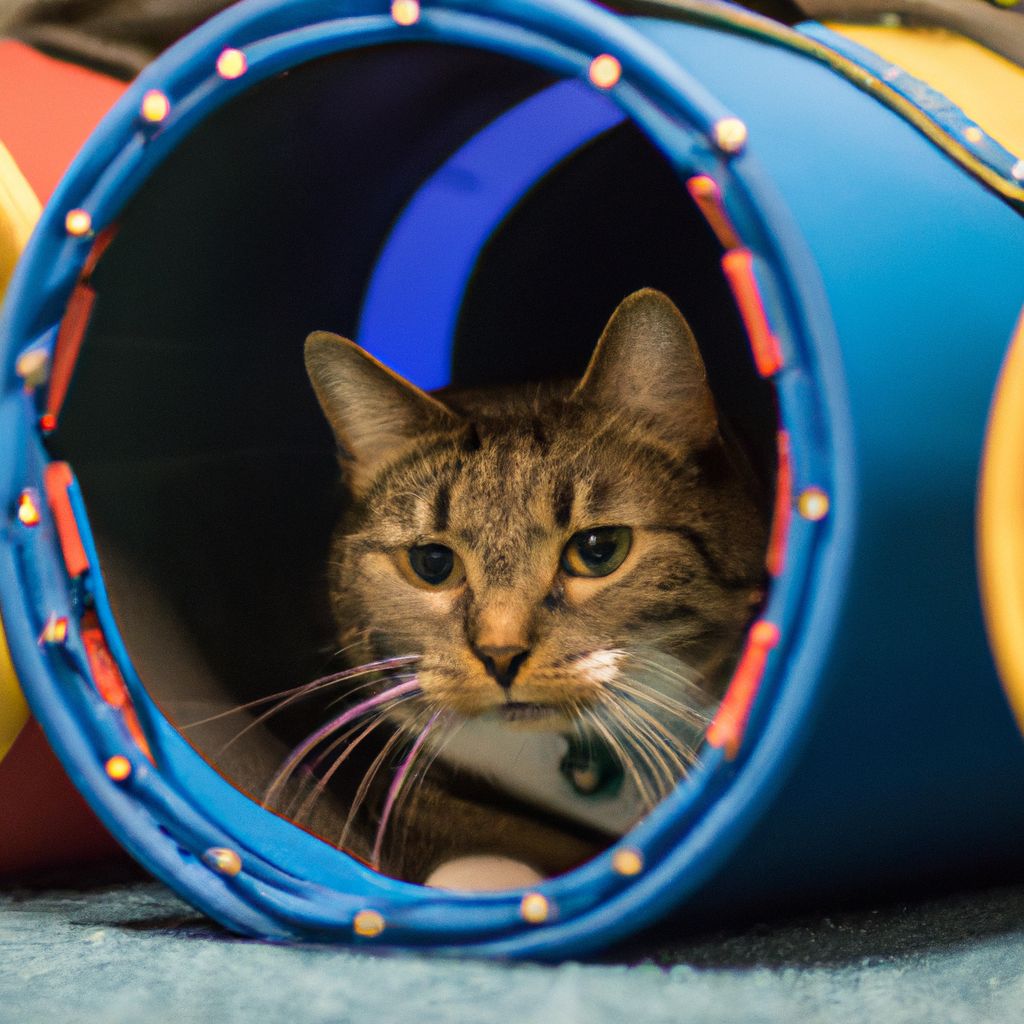.jpg)
Understanding Cat Allergies
Cat allergies got you wheezing? It is important to understand the causes. Proteins in cats’ skin cells, saliva and urine can trigger reactions like sneezing, coughing, itching, watery eyes and asthma attacks.
To manage cat allergies, create an “allergy-free” zone at home. Keep cats out of bedrooms and other personal spaces. Also, groom them regularly to minimize allergens on their fur. Use HEPA filters in air purifiers and vacuum cleaners.
Another option is allergen immunotherapy. This involves exposing individuals to small amounts of allergens over time. Speak to a healthcare professional to find out if this is suitable.
Ancient Egyptians revered cats despite allergies. But they continued their special bond due to companionship and mystical allure.
So, give your furry friend space and your nostrils fresh air.
Managing Cat Allergies at Home
Sneezy from cat allergies? Get allergy-proofed! No need for tissues, just peace-iss! Here are some tips to help you manage your cat allergies:
- Wash your hands after petting your cat.
- Clean surfaces and bedding regularly.
- Use hypoallergenic products.
- Talk to an allergist for personalized advice.
- Create “cat-free zones” in your home to reduce exposure to allergens.
Enjoy your pets while living comfortably with allergies.
Allergy-Proofing Your Daily Routine
Text:
Keep your living space clean – dust, vacuum and mop regularly. Use high-efficiency filters in your HVAC system to catch airborne particles.
Designate areas where your cat’s not allowed – like bedrooms and living rooms. These will provide allergy-free spaces to relax.
Wash your hands after interacting with cats or cleaning their litter box. This can prevent the spread of allergens.
Invest in hypoallergenic bedding, use air purifiers, and groom your cat regularly. This can reduce allergens even more in your routine.
Did you know? About 10% of the population is allergic to household pets like cats. But, you don’t need to put them in a hazmat suit!
Creating a Healthy Environment for Both Cats and Allergic Individuals
Creating a healthy environment for cats and those with allergies is vital. This requires thoughtful measures.
- Restricting the cat’s access to certain areas of the house can reduce exposure to allergens. Accomplish this by closing bedroom doors or employing baby gates.
- Groom and bathe the cat often to reduce allergens in their fur. Use hypoallergenic pet shampoos for best results.
- A high-quality air purifier with a HEPA filter can capture airborne allergens. Clean and maintain regularly for peak performance.
- Wash bedding and curtains frequently at high temps to diminish allergens on surfaces. Use allergy-proof pillowcases and mattress covers for extra protection.
Also, pick cat-friendly furniture and materials that are easy to clean, such as leather or microfiber upholstery. These are less likely to trap allergens than fabrics like velvet or corduroy.
Furthermore, select a suitable litter box location away from common living areas. Clean the box often for hygiene and allergen levels.
Research shows that 10% of people are allergic to cats (source: American College of Allergy, Asthma & Immunology). Taking proactive steps to create a healthy environment enables cats and those with allergies to coexist peacefully while decreasing discomfort and health problems.
Always consult a medical professional unless you prefer sneezing over breathing.
Consultation with a Medical Professional
Consulting a medical professional is key for managing cat allergies. They can provide personalized advice and insights based on your individual needs and medical history. Tests are done to identify the specific allergen causing your symptoms and recommend treatment options.
During the consultation, the professional will evaluate your symptoms and medical history. They may also perform allergy tests to pinpoint the exact allergen. This info is essential for an effective management plan.
Lifestyle modifications can help minimize exposure to cat allergens. This may include creating an allergen-free home environment or strategies for reducing contact with cats in public. They can offer advice on proper medication usage and discuss potential side effects or interactions.
Consulting a medical professional is essential for cat allergies. Their expertise can provide valuable info and resources to manage your symptoms. Don’t let allergies hold you back from seeking professional guidance. Take control and say goodbye to the suffering caused by cat allergens – schedule a consultation today.
Enjoying the Company of Cats without Allergic Reactions
Cats and allergies can be a tricky mix, but there are ways to make it work. Grooming and cleaning the cat’s environment is a must. Hypoallergenic breeds produce fewer allergens, so that’s an option too. Keep cats out of bedrooms and other areas you spend time in, and wash fabrics that may have allergens. Air purifiers or HEPA filters can help minimize the allergens in the air. It’s also important to remember that allergies vary from person to person, so consult a healthcare professional for personalized advice.
Take Sarah for example – highly allergic to cats, but she adopted a rescue kitty named Whiskers. She followed all the necessary precautions and managed her allergies. With the right care and management techniques, allergic individuals can coexist with furry friends. All it takes is a bit of extra effort! So go on, stock up on tissues and enjoy some furry love!
Conclusion
To wrap up, it’s key to keep in mind that managing cat allergies calls for a proactive attitude. By applying these tips and being cautious, people with allergies can relish their time with cats without feeling the discomfort of symptoms.
So, don’t let this chance pass by! Utilize the strategies mentioned in this article today. Your new-found knowledge won’t just better your life, but will also boost the connection between you and your furry pals. Welcome the opportunity for a more content and healthier relationship with cats!
Here’s a recap of the main takeaways for managing cat allergies:
- Identify your triggers. Figure out the allergens that cause your reactions and attempt to reduce exposure.
- Keep a clean environment. Clean your living space regularly, mainly areas where your cat spends a lot of time. This can lower allergens in the air.
- Look into allergy medications. Consult a healthcare professional about suitable over-the-counter or prescription medications that can ease your symptoms.
- Practice good hygiene. Wash your hands after touching cats or coming into contact with cat allergens. This avoids the spread of allergens to other places.
Frequently Asked Questions
FAQ 1:
Q: What are some common symptoms of cat allergies?
A: Common symptoms of cat allergies include sneezing, itching, watery or red eyes, nasal congestion, coughing, and in severe cases, difficulty breathing or asthma attacks.
FAQ 2:
Q: How can I manage cat allergies if I have a cat at home?
A: There are several ways to manage cat allergies. Firstly, create an “allergy-free” zone in your home where the cat is not allowed. Regularly clean your home, especially areas where the cat spends time. Consider using air purifiers with HEPA filters, and wash your hands and clothes immediately after interacting with your cat.
FAQ 3:
Q: Are there any effective medication options for cat allergies?
A: Yes, there are medications available to manage cat allergies. Antihistamines can help alleviate symptoms such as sneezing and itching. Nasal sprays can reduce congestion, and decongestants can provide temporary relief. It’s best to consult with a healthcare professional to determine the most suitable medication for your specific allergies.
FAQ 4:
Q: Can immunotherapy be beneficial for cat allergies?
A: Immunotherapy, commonly known as allergy shots, can be an effective long-term solution for cat allergies. The treatment involves receiving regular injections of small amounts of allergens to build up immunity. This process can help reduce the severity of allergic reactions over time.
FAQ 5:
Q: Are there any alternative remedies or natural treatments for cat allergies?
A: While there is limited scientific evidence, some people find relief from alternative remedies or natural treatments. These may include using saline nasal rinses, consuming local honey, or trying herbal supplements like butterbur or quercetin. It’s important to consult with a healthcare professional before trying any alternative treatments.
FAQ 6:
Q: Is it possible to outgrow cat allergies?
A: It is possible for some individuals to outgrow cat allergies, but it varies from person to person. Allergies can change over time, and it’s best to consult with an allergist to determine if you have indeed outgrown your cat allergy.






